Earth
Sign up for our newsletter
We summarize the week's scientific breakthroughs every Thursday.
-
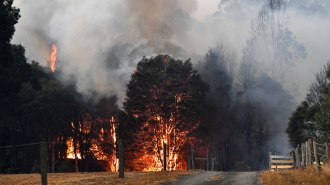 Climate
ClimateAustralian fires in 2019–2020 had even more global reach than previously thought
Recent devastating wildfires in Australia added vast amounts of carbon dioxide to the air and triggered blooms of marine algae in the Southern Ocean.
-
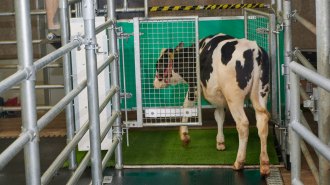 Agriculture
AgriculturePotty-trained cattle could help reduce pollution
About a dozen calves have been trained to pee in a stall. Toilet training cows on a large scale could cut down on pollution, researchers say.
-
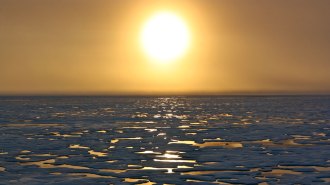 Earth
EarthHow AI can help forecast how much Arctic sea ice will shrink
Trained on sea ice observations and climate simulations, IceNet is 95 percent accurate in forecasting sea ice extent two months in advance.
-
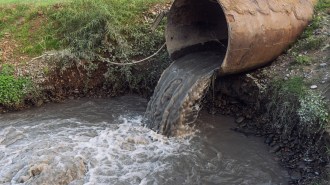 Environment
Environment50 years ago, chemical pollutants were linked to odd animal behavior
Fifty years after studies hinted that pollution interferes with how aquatic creatures communicate, scientists are still unraveling its myriad effects.
By Aina Abell -
 Earth
EarthClouds affected by wildfire smoke may produce less rain
As wildfires become more frequent in the western United States, these low-rain clouds could exacerbate drought, fueling more fires.
-
 Agriculture
AgricultureCold plasma could transform the sustainable farms of the future
Physicists have been working on ways to use the power of plasma to boost plant growth and kill pathogens.
-
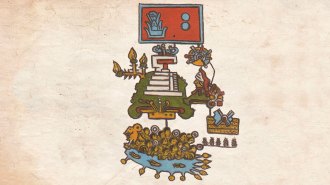 Earth
EarthThis pictogram is one of the oldest known accounts of earthquakes in the Americas
The Telleriano-Remensis, a famous codex written by a pre-Hispanic civilization, describes 12 quakes that rocked the Americas from 1460 to 1542.
-
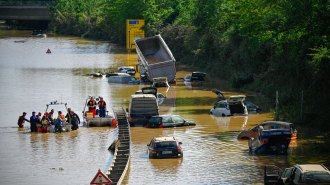 Climate
ClimateClimate change made Europe’s flash floods in July more likely
The deadly July floods in Belgium and Germany bear the fingerprints of human-caused climate change, scientists say.
-
 Earth
EarthHaiti’s citizen seismologists helped track its devastating quake in real time
Two scientists explain how citizen scientists and their work could help provide a better understanding of Haiti’s seismic hazards.
-
 Science & Society
Science & SocietyHow extreme heat from climate change distorts human behavior
As temperatures rise, violence and aggression go up while focus and productivity decline. The well off can escape to cool spaces; the poor cannot.
By Sujata Gupta -
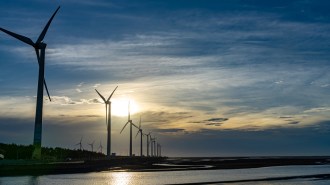 Physics
PhysicsWindbreaks, surprisingly, could help wind farms boost power output
Wind farm performance could be improved by 10 percent by using low barriers to increase the wind speed directed at the turbines, simulations suggest.
-
 Climate
ClimateThe new UN climate change report shows there’s no time for denial or delay
Human-caused climate change is unequivocally behind extreme weather events from heat waves to floods to droughts, a massive new assessment concludes.